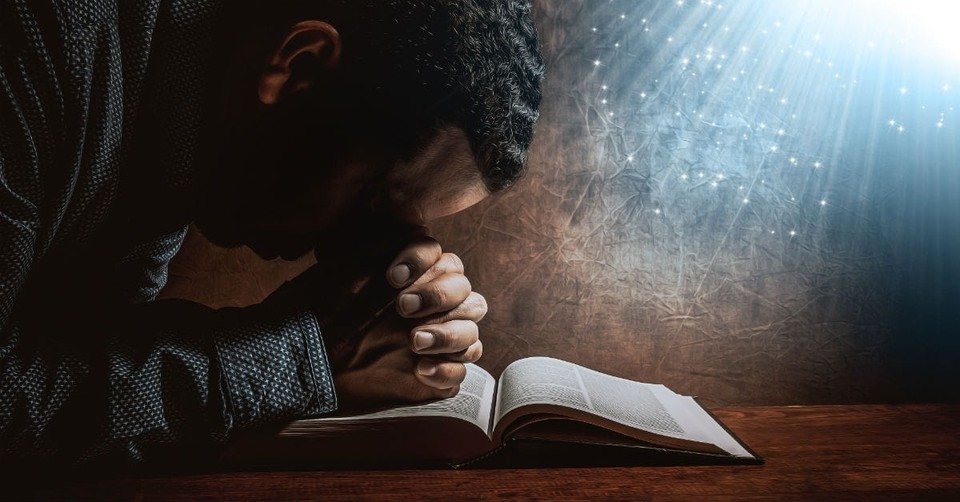"You Don't Know Anything" - The Reconciled Church

I am a white person. I grew up in rural Kansas. I never knew any black people as a child. In the closest town, there was one black person in the four-hundred-student high school. I feel like the least qualified person to write on this topic. But something happened to me that changed my perspective.
In January, 2015, I received an invitation to attend a special conference in Dallas—“The Reconciled Church”—hosted by two of America’s great heroes and prophets: Bishop Harry Jackson and Bishop T. D. Jakes. I really wanted to learn from my black brothers, but I was painfully aware that I could contribute so little. As we landed in Dallas, I sensed the spirit of God say to me: “You are to say nothing. You don’t know anything. You are going to learn. Be silent.”
The meeting lasted all day. I recognized quickly I truly did know nothing. I was there to try to grasp the thinking of African Americans who knew the topic not by mere study, but by painful personal experiences. Calling the meeting together, Bishop T. D. Jakes was bold and straightforward. He and the rest of us were not there to state some platitudes about racial unity and then go glibly back home. Later that day, I had an unanticipated chance to be alone with Bishop Jakes. What he shared with me broke my heart.
He reported that over the decades, whites had frequently called on him to support their causes. And he had always responded. “But I always had to go to them,” he continued. “I am fifty-seven years of age, and this is the first time that whites have come to us—as blacks— to support what we are doing.” I asked him to share his account again with a white brother who was nearby. But the man, oblivious to the deep vulnerability of the moment, interrupted Bishop Jakes, “You know I am not that way.” Bishop Jakes nodded in general agreement. I stepped in, “No, listen to what he is saying.” Bishop Jakes began again, but, again, he was unsuccessful in completing his story.
I walked away doubly stunned by my black brother's pain and my white brother's defense.
Later that evening, about five thousand people gathered at Bishop Jakes’s auditorium. I was quite surprised to be asked to share for a few moments along with several others. When it was my turn to speak, I explained to the crowd that I had not come to speak, and that I was unworthy to be on the platform. The Holy Spirit had (rightfully) informed me that I knew nothing, was to be silent, and to learn from those who knew. I then simply told the story of what happened earlier in the day.
I could not put in words how much what Jakes told me impacted and saddened me. I told the crowd that after the Bishop shared with me, I had begun to wonder what the 190 black pastors in San Diego would say about me. I did not want to contemplate what the answer might be.
I then looked at Bishop Jakes sitting on the front row, and said, “I am sorry. I am so sorry. Fifty-seven years is too long for you to have to wait. We have done wrong. It has taken us a long time. But we are here with you now. Please forgive me. Please forgive us. We can do better. We will do better.”
I was shocked when the crowd stood to their feet, applauding, cheering, and even crying. I began to walk to my seat. But Bishop Jakes met me first. We embraced and held each other for a long time. The cameras caught the moment. And if anyone looks carefully you can lip-read what he is saying, “I needed that. I needed that. I needed that.”
What is the scriptural principle? In John 4:4 (AMPC), Jesus decided that “it was necessary for Him to go through Samaria,” to intersect with a racially different group. In Luke 10:31–32, the priest and Levite both “passed by on the other side” to avoid going to the place of need. But one man went to the one in need. He did not expect the one in need to come to him. Jesus said, “Go and do likewise” (Luke 10:37, NIV).
REACH OUT AND LEARN
Surveys indicate that America is not moving in the right direction on this issue of race. Most assumed—including me—that the election of a black president would improve race relations. That did not happen. Tragically, racial tensions seem to be increasing. That is why Americans of all colors com¬ing together to listen and to share our burdens, our sorrows, and our lack of understanding is so important, today more than ever.
James L. Garlow is the author of fifteen books on historical, theological, and cultural issues. He is the senior pastor of Skyline Church in San Diego. Visit his web site by following this link.
Excerpted from Well Versed: Biblical Answers to Today's Tough Issues, used with permission, Regnery Faith, Washington, D.C.
*Published 10/25/2016
Originally published October 31, 2017.





